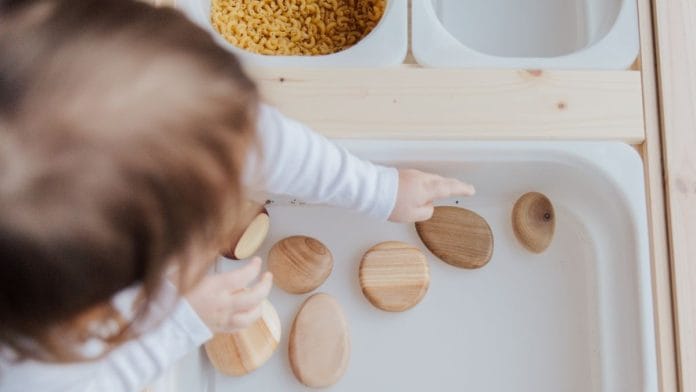Thank you dear subscribers, we are overwhelmed with your response.
According to Maria Montessori, “the beautiful butterfly will not emerge if the caterpillar has not lived his life, hidden himself, eaten and done all his work, unconscious of what was to be.” She felt the child should be allowed to exploit his potential, or in Maria Montessori’s words, “the child must construct himself in every detail.” This alone will help him to blossom into a beautiful flower.
India has one resource in abundance: it is population, often debated as the “Boon or the Bane”. Over 13% are below the age of 6 years. It is important for us to harness this resource to the country’s advantage lest the “Asset” should become a “Liability”. For that, starting early is the key. It is time we start giving pre-primary and primary education as much importance if not more, as we give to higher education. “All of a Nation” focus and joining hands is required to ensure that not only the wards of the moneyed but also those of the poorest of the poor have access to a learning process that does not promote rote memory but where children can get to flourish by Play Way method.
The Montessori and the Play Way methods have proven record of cultivating an inquisitive mind, sharper motor and observation skills. A child’s mind absorbs a great deal from his environment. Even while merely looking into the vacant space, he may actually be observing something that adults may consider insignificant. How he sees and perceives it, the amazement in his eyes and the sense of joy he feels, will all go a long way in shaping him as an adult. A small child whose parents are poor and work to make two ends meet, goes to a school with poor basic infrastructure and teachers not trained in the Play Way method or have no Montessori. Here, the teachers make the students repeat numbers or
alphabets after them and then make them copy in their notebooks. The child is treated as a robot, without understanding the how’s and why’s of what he is doing and how will it be applied in life. The parents are happy that unlike them, their child is going to a school, parrots out a poem and rattles out numbers till hundred.
Some people would call it moving ahead; some progress at least! Is it really?
Now, take another four-year old going to a pre-school where conditions are just the opposite. Decent infrastructure, reasonably big play area, lots of educational toys and well-trained teachers. Here, the emphasis will be on development of the little ones’ cognitive, motor and comprehension skills. They will not learn numbers by cramming but by the teacher holding a toy in her hand, asking the children what she is holding and then homing on to the number of toys. Further, if the response is 2, she will then point out to a chart with 2 written on it. This familiarization process will be taken forward till the child
absorbs the shape and quantity that 2 connotes. For language skills, new words will be introduced to small children through more effective ways like story-telling. For some age specific words in the story, she would use pictures and other tools to make these a part of their vocabulary, with understanding of the sound of these words, as pronounced.
The bottom-line need is formulation of a gradual learning process where a child is given to absorb the content in imaginative ways, including real life applications. A great example would be of the teacher taking the young kids to the school open yard, giving the children some gardening tools and getting them to dig the soil in a small patch, and having each one to put in some seeds. Every day, the children
go and water their respective patch with their tiny water sprinkling cans. Can anybody imagine their happiness when they first notice small green shoots sprouting out? Would this exercise be in vain – definitely not. This would be the true development of cognitive, motor and social skills, and developing environmental consciousness at grass roots.
I know there is a small percentage of small children who have an access to what is the best. They will be a part of India’s growth story but that growth will be lop-sided and not pervasive. Should we be satisfied with that? The true cause for celebration will be when our government schools ensure that every preschooler gets a decent chance to develop a questioning mind because his learning process at the formative stage helped him to absorb and assimilate things and not cram them. By doing this, we would ensure a strong foundation for a more equitable, cognizant and innovation generating education system.
Just the “Five Trillion Economy’ may not be good enough.
These pieces are being published as they have been received – they have not been edited/fact-checked by ThePrint.


